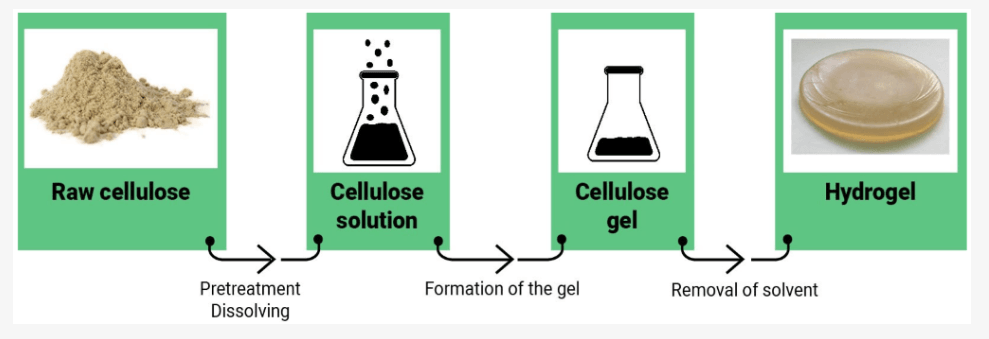As demand grows for plant-based and ethical products, ingredient transparency matters more than ever. One common question from supplement brands and pharmaceutical buyers is: Is cellulose gel vegan? It appears in everything from capsules to food stabilizers—but does it meet vegan standards?
Yes, cellulose gel is vegan.
It is made entirely from plant-based sources like wood pulp or cotton and contains no animal-derived ingredients or byproducts.
1. What Is Cellulose Gel?
Cellulose gel is a plant-derived substance used widely in food, pharmaceutical, and cosmetic products. It’s a form of processed cellulose—an organic compound found in the cell walls of plants.

source: mdpi
It's commonly labeled as:
- Microcrystalline Cellulose (MCC)
- Cellulose Gum (CMC)
- Hydroxypropyl Methylcellulose (HPMC)
These ingredients are used as: - Capsule shells (especially vegan capsules)
- Stabilizers and thickeners in food and cosmetics
- Binders in tablets and supplements
2. Is Cellulose Gel Vegan?
Yes. Cellulose gel is vegan for the following reasons:
✅ Plant-Based Source: Derived from wood pulp or cotton linters—no animals involved.
✅ No Animal Derivatives: No gelatin, dairy, eggs, or insects are used in the ingredient or its processing.
✅ No Animal Testing Required: Cellulose is classified as GRAS (Generally Recognized as Safe) by the FDA and does not require new animal testing in most use cases.
Many products containing cellulose gel also carry third-party certifications such as:
- Vegan Society certification
- Certified Vegan logo
- Non-GMO, Kosher, or Halal certifications
3. How Is Cellulose Gel Used in Vegan Products?
Cellulose gel is a key ingredient in many plant-based formulations. You’ll find it in:
- Vegan capsule shells (HPMC capsules)
Used to replace gelatin in supplement and pharmaceutical capsules. - Meat alternatives & dairy-free products
Acts as a texture enhancer and moisture binder in vegan burgers, cheeses, and yogurts. - Pharmaceutical tablets
Serves as a binder and disintegrant without animal ingredients. - Cosmetics and skincare
Used as a thickener or emulsion stabilizer in vegan skincare lines.
Its versatility, safety, and vegan origin make cellulose gel one of the most widely accepted plant-based ingredients today.
4. What Should You Look for on Labels?
When sourcing vegan-friendly products or ingredients, check for these keywords:
- HPMC (Hydroxypropyl Methylcellulose) – often used in vegan capsule shells
- Microcrystalline Cellulose (MCC)
- Cellulose Gum / CMC
Avoid:
- Gelatin
- Hydrolyzed collagen
- Shellac (from insects)
These are not vegan and are still common in traditional capsule or coating formulations.
5. Why This Matters for Capsule Manufacturers
If you're a supplement brand, pharmaceutical developer, or cosmetics formulator, choosing the right capsule material is critical. As more consumers demand
vegan and allergen-free options, switching to cellulose-based materials like HPMC can future-proof your product line.
At LTPM CHINA, we offer HPMC Softgel production lines for plant-based shells.
